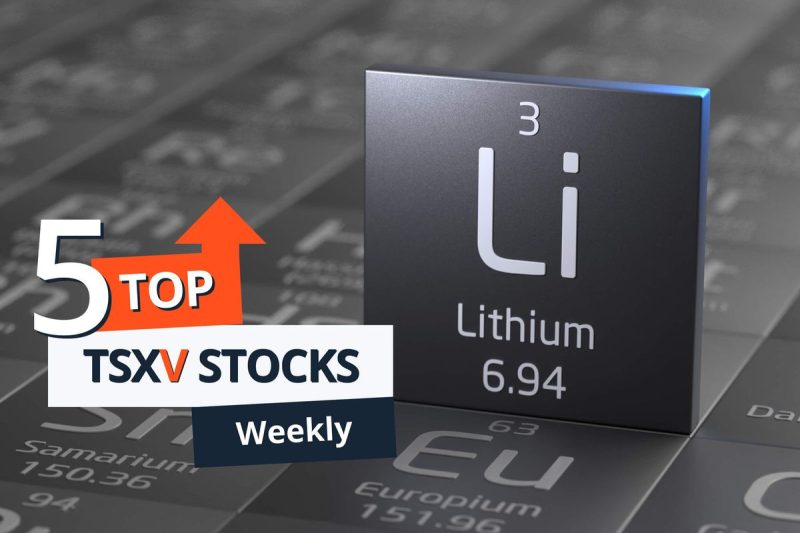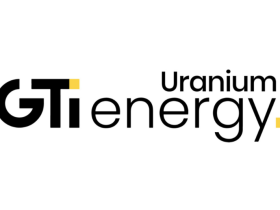The S&P/TSX Venture Composite Index (INDEXTSI:JX) lost 3.38 points last week to close at 570.71.
Statistics Canada released its mining statistics for 2022 this past Thursday (June 20). The data shows that metal ore mining brought in C$39.11 billion to the economy for the year, an increase of around C$636.8 million from 2021.
Leading the way were the base metals copper, nickel, lead and zinc with C$13.2 billion in combined revenue; nickel-copper ore mining headlined the section with revenue of C$7.23 billion. Its own category, iron ore mining brought in C$10.65 billion in revenue, while revenue from gold and silver totaled C$13.18 billion.
Meanwhile, non-metallic mining brought in C$21.91 billion, with potash leading the category. Its revenue came in at C$17.78 billion, which is more than double its 2021 total. According to Statistics Canada, the top provinces by total metal ore mining revenue were Québec with C$12.44 billion, Ontario with C$10.81 billion and Newfoundland and Labrador with C$5.22 billion. Only partial data was published for BC and the three territories, as some data points were either unavailable or suppressed due to the Statistics Act’s confidentiality requirements.
Statistics Canada also released April’s production and shipments of minerals on Friday (June 21). The release shows a large decrease in copper production from March; it fell to 41.79 million kilograms from 49.79 million kilograms. Gold output also declined in April, with 14,731 kilograms produced compared to 15,521 the prior month. Of the three minerals included in the report, only silver saw an increase, with production rising almost 1,100 kilograms to 25,103 kilograms.
South of the border in the US, the Conference Board released its latest Leading Economic Index (LEI) report this past Friday. It shows that the LEI declined by 0.5 percent in May, which came on the heels of a 0.6 percent decline in April. On a six month basis, the index fell 2 percent, slower than the 3.4 percent slowdown in the previous six months.
The Conference Board said the continued contraction doesn’t currently signal a recession, and that it expects the annualized growth rate for real gross domestic product to fall to under 1 percent in Q2 and Q3 of this year. The LEI has faced dual pressures from high inflation figures and high interest rates, which continue to weigh on consumer spending.
After jumping in the middle of the week, both gold and silver fell on the back of a strong US dollar and higher bond yields. Ultimately, gold finished the week at US$2,322 per ounce and silver closed it at US$29.53 per ounce.
Against that backdrop, which TSXV-listed mining and energy stocks rose the most? Here are the top gainers.
1. Noram Lithium (TSXV:NRM)
Weekly gain: 66.67 percent; market cap: C$32.5 million; share price: C$0.30
Noram Lithium is a lithium exploration and development company focused on the advancement of its Zeus lithium project in Nevada, US. The property, located near Clayton Valley, comprises 146 placer and 136 lode claims covering 1,133 hectares in a region with existing lithium brine operations since 1967. Noram has been exploring the site since 2016.
Last week was the second week in a row that Noram has come first on this list. The company’s most recent update came on June 11, when it released an updated mineral resource estimate for Zeus, reporting an indicated resource of 564 million metric tons (MT) at a concentration of 956 parts per million, resulting in 2.9 million MT of contained lithium carbonate equivalent. Zeus’ inferred resource stands at 1.3 million MT of contained lithium carbonate equivalent from 287 million MT grading 861 parts per million lithium.
2. West High Yield Resources (TSXV:WHY)
Weekly gain: 58.18 percent; market cap: C$39.7 million; share price: C$0.435
West High Yield Resources is a magnesium-focused explorer and developer that is advancing its Record Ridge industrial minerals mine project. Located near Rossland, BC, the site covers 29 mineral claims over 8,972 hectares and hosts a measured and indicated resource of 10.6 million MT of magnesium, as well as silica and nickel.
The company is currently in the latter stages of the mining permit application process for Record Ridge, which is located in the Osoyoos Indian Band’s traditional territory.
Shares of West High Yield saw gains this past week following a June 14 announcement that it has signed a letter of intent with the company Skemxist Solutions, which is a partnership between the Osoyoos Indian Band and the Sutherland Group of Companies, for services including road construction and operation of the Record Ridge mine.
The company said this builds on an earlier cooperation agreement and follows the Osoyoos Indian Band’s independent review and oversight of the project. If completed, the mine is expected to produce up to 200,000 MT of magnesium per year.
3. Tincorp Metals (TSXV:TIN)
Weekly gain: 38 percent; market cap: C$16.73 million; share price: C$0.345
Tincorp Metals is an exploration company working to advance its tin assets in Bolivia and gold asset in Yukon, Canada. Its Porvenir tin-zinc-silver project and SF tin project are located in close proximity to each other in Western Bolivia.
Porvenir is an 11.25 square kilometer property that historically hosted small-scale mining. Tincorp’s 2023 exploration encountered an interval of 21.2 meters grading 0.65 percent tin, 1.97 percent zinc, 4 grams per metric ton (g/t) silver and 0.1 percent copper. SF covers a 2 square kilometer area in the Potosi Department of West-Central Bolivia. The site hosts a historic open-pit mine and was explored by Rio Tinto (ASX:RIO,LSE:RIO,NYSE:RIO) in the 1990s. Its 2022 exploration program included a drill hole with 0.2 percent tin, 0.94 percent zinc, 0.17 percent lead and 24.01 g/t silver over 182.6 meters.
Tincorp also owns the 170.3 square kilometer Skukum gold project in the Yukon, which hosts multiple gold and silver deposits and thee historic Mount Skukum gold mine. A 2022 estimate shows indicated resources of 348,000 ounces of gold and 5.87 million ounces of silver, and inferred resources of 449,000 ounces of gold and 5.63 million ounces of silver.
Shares of Tincorp rose this past week following the release of results from its annual general and special meeting.
4. Freeport Resources (TSXV:FRI)
Weekly gain: 27.27 percent; market cap: C$16.19 million; share price: C$0.07
Freeport Resources is focused on the advancement of its Yandera copper, gold and molybdenum project located in Madan, Papua New Guinea. Yandera covers an area of 245.5 square kilometers and has been explored since the 1960s. Freeport acquired the project in August 2021, when it bought out Carpo Resources and its subsidiary Era Resources.
A 2017 prefeasibility study commissioned by Era projects a net present value of US$1.04 billion with an internal rate of return of 23.5 percent and a payback period of five years and eight months. It also shows measured and indicated resources of 2.81 million MT of contained copper equivalent and a projected mine life of 20 years.
This past February, Freeport announced that it had been granted a two year extension for its exploration license from the government of Papua New Guinea. On Monday, Freeport issued two press releases — it announced that it had received an extension until June 28 for the completion of its private placement from the TSXV, and that it had increased the size of the placement to 140 million units for gross proceeds of up to C$7 million.
5. O3 Mining (TSXV:OIII)
Weekly gain: 24.53 percent; market cap: C$110.86 million; share price: C$1.32
O3 Mining is a gold explorer and developer working to advance its assets in Québec, Canada.
The company’s Marban Alliance gold project is composed of 65 mining claims covering 2,189 hectares in Western Québec. Exploration at the site dates back to the 1940s and has seen drilling to a depth of 1,475 meters. A prefeasibility study from 2022 outlines a pre-tax net present value of C$775 million for the asset with an internal rate of return of 30.2 percent and a payback period of 3.5 years.
O3 also owns the Horizon project, made up of 192 claims over 8,778 hectares directly to the northwest of Marban. On May 23, the company reported that it had received all assays from its winter drill program. O3 highlighted an intercept of 0.8 g/t gold over 9.1 meters, including 5.3 g/t gold over 0.5 meters.
The most recent news from the company came this past Wednesday (June 19), when it issued of 215,517 common shares
priced at C$1.16 each to partially satisfy a convertible debenture interest obligation.
FAQs for TSXV stocks
What is the difference between the TSX and TSXV?
The TSX, or Toronto Stock Exchange, is used by senior companies with larger market caps, while the TSXV, or TSX Venture Exchange, is used by smaller-cap companies. Companies listed on the TSXV can graduate to the senior exchange.
How many companies are listed on the TSXV?
As of September 2023, there were 1,713 companies listed on the TSXV, 953 of which were mining companies. Comparatively, the TSX was home to 1,789 companies, with 190 of those being mining companies.
Together the TSX and TSXV host around 40 percent of the world’s public mining companies.
How much does it cost to list on the TSXV?
There are a variety of different fees that companies must pay to list on the TSXV, and according to the exchange, they can vary based on the transaction’s nature and complexity. The listing fee alone will most likely cost between C$10,000 to C$70,000. Accounting and auditing fees could rack up between C$25,000 and C$100,000, while legal fees are expected to be over C$75,000 and an underwriters’ commission may hit up to 12 percent.
The exchange lists a handful of other fees and expenses companies can expect, including but not limited to security commission and transfer agency fees, investor relations costs and director and officer liability insurance.
These are all just for the initial listing, of course. There are ongoing expenses once companies are trading, such as sustaining fees and additional listing fees, plus the costs associated with filing regular reports.
How do you trade on the TSXV?
Investors can trade on the TSXV the way they would trade stocks on any exchange. This means they can use a stock broker or an individual investment account to buy and sell shares of TSXV-listed companies during the exchange’s trading hours.
Data for this 5 Top Weekly TSXV Performers article was retrieved at 1:00 p.m. PST on June 14, 2024, using TradingView’s stock screener. Only companies with market capitalizations greater than C$10 million prior to the week’s gains are included. Companies within the non-energy minerals and energy minerals were considered.
Article by Dean Belder; FAQs by Lauren Kelly.
Securities Disclosure: I, Dean Belder, hold no direct investment interest in any company mentioned in this article.
Securities Disclosure: I, Lauren Kelly, hold no direct investment interest in any company mentioned in this article.





